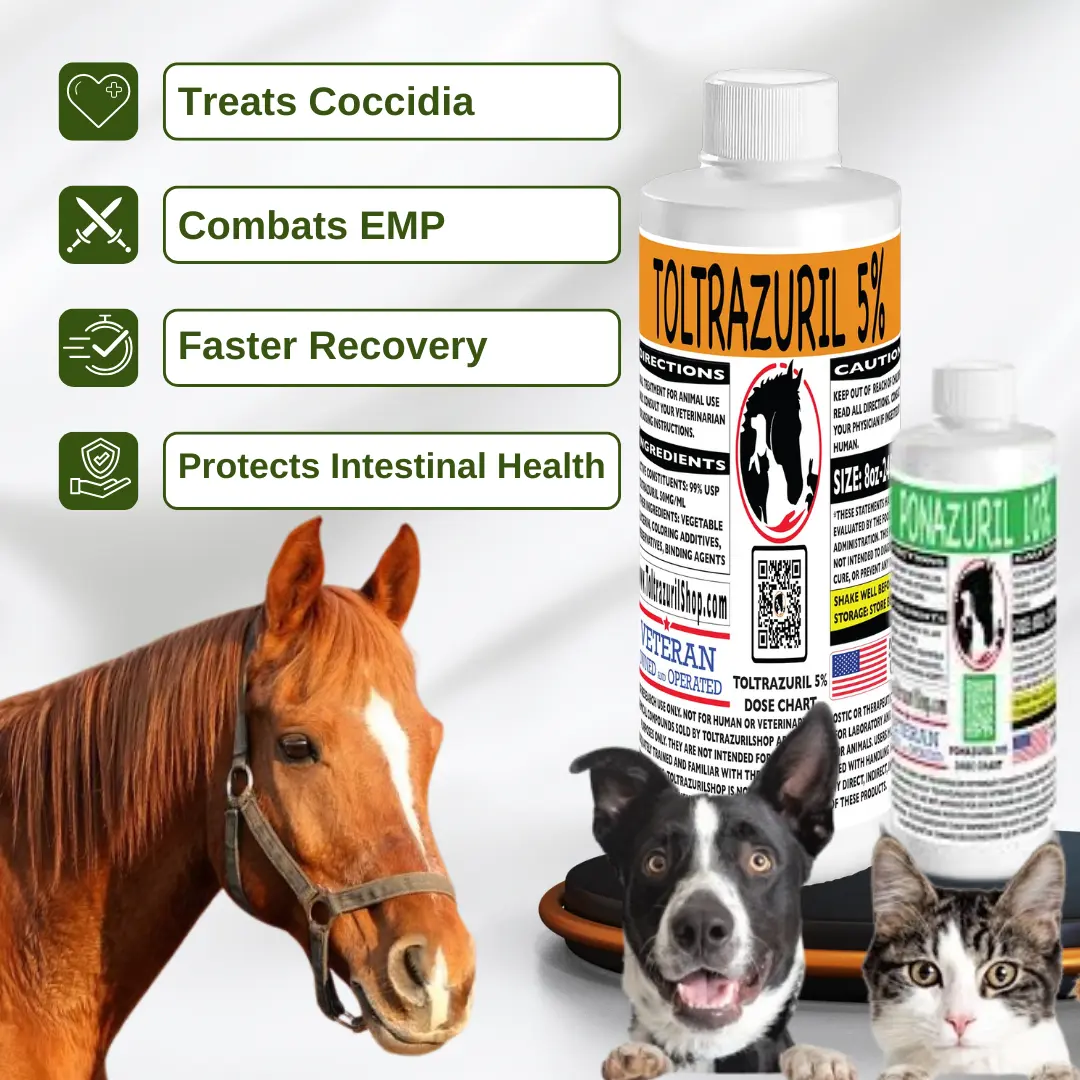No products in the cart.
Coccidia Parasite in Dogs: Causes, Symptoms, and Treatment
The coccidia parasite in dogs is a common intestinal parasite that causes gastrointestinal issues such as diarrhea, vomiting, and dehydration. Understanding how coccidia works, its symptoms, and how to treat it is important for any dog owner. In this article, we’ll explore the nature of the coccidia parasite in dogs, how it infects the intestines, and the lifecycle of the parasite.
What is the Coccidia Parasite in Dogs?
Coccidia is a single-celled protozoan parasite that affects the intestines of dogs. It is commonly transmitted through ingestion of contaminated food, water, or surfaces containing the parasite’s oocysts (egg-like cysts). These parasites can cause inflammation and damage to the intestinal lining, leading to gastrointestinal symptoms.
🔬 Understanding the Biological Nature of the Coccidia Parasite
The coccidia parasite belongs to the group of protozoans and is microscopic. It has a complex lifecycle that involves several stages of development, starting when a dog ingests the oocysts from contaminated environments. Once inside the dog’s intestines, the parasite invades the intestinal lining, replicating and causing damage.
🐾 How the Coccidia Parasite Infects the Intestines of Dogs
After ingestion, coccidia oocysts mature into sporozoites inside the dog’s intestines. These sporozoites invade the intestinal cells, causing damage and inflammation. As the parasite reproduces, it disrupts normal digestion, leading to symptoms like diarrhea and dehydration. Over time, if left untreated, it can lead to further complications like weight loss and general weakness in the dog.
Parasites in Dogs: Coccidia
Coccidia is one of many intestinal parasites that affect dogs, but its symptoms and lifecycle make it unique. Understanding how it compares to other common parasites is essential for diagnosis and treatment.
🦠 The Role of Coccidia Among Other Intestinal Parasites in Dogs
Infected dogs often show symptoms that resemble other intestinal parasites like roundworms and giardia. However, coccidia differs in that it causes intestinal cell invasion rather than feeding on blood like roundworms. While giardia also leads to diarrhea, it does not damage the intestinal lining as coccidia does. Coccidia infections are often more severe in puppies or immune-compromised dogs.
🔍 How Coccidia Differs from Roundworms and Giardia in Dogs
Unlike roundworms, which primarily cause damage by feeding on the dog’s blood, coccidia affects the intestines at the cellular level. Giardia causes similar symptoms like diarrhea, but it attaches to the intestines without actually invading the cells. Coccidia, on the other hand, leads to much more severe inflammation and intestinal damage, often causing bloody diarrhea and more pronounced gastrointestinal distress.
Parasite Coccidia in Dogs
The coccidia parasite behaves like an opportunistic pathogen, infecting dogs when their immune systems are weakened. It can lead to severe symptoms if not treated promptly.
🐕 How Coccidia Acts as a Parasite in Dogs
As a parasite, coccidia relies on the dog’s intestines for its survival and reproduction. Once ingested, the parasite damages the intestinal lining by invading the cells, disrupting digestion, and leading to malabsorption of nutrients. This results in diarrhea, dehydration, and other symptoms that require veterinary treatment.
🌱 The Lifecycle and Reproduction Process of Coccidia in Dogs
The lifecycle of coccidia begins when a dog ingests the oocysts from contaminated food, water, or surfaces. Once in the intestines, the oocysts develop into sporozoites, which invade the intestinal cells. These sporozoites reproduce inside the cells, causing cell damage and inflammation. Eventually, new oocysts are released into the feces, completing the cycle and potentially infecting other dogs.
Coccidian Parasite in Dogs
There are different types of coccidian parasites that infect dogs, and understanding these can help with diagnosis and treatment. The most common species that affect dogs are Isospora and Eimeria.
🦠 Types of Coccidian Parasites Commonly Found in Dogs
- Isospora: This is the most common species of coccidia that infects domestic dogs. It can cause severe diarrhea, dehydration, and weight loss, especially in puppies.
- Eimeria: Though less common in domestic dogs, Eimeria can still cause gastrointestinal issues. It is more frequently found in wild animals but can infect dogs under certain conditions.
🔬 Understanding Isospora and Eimeria Species in Dogs
- Isospora: This species typically affects puppies and older dogs with compromised immune systems. It is responsible for most coccidia infections in dogs and can be treated with antiprotozoal medications.
- Eimeria: While Eimeria is rarer in dogs, it can cause mild to moderate gastrointestinal upset, including diarrhea. It is more commonly found in wild canines but can infect domestic dogs in contaminated environments.
Conclusion
The coccidia parasite in dogs can cause significant gastrointestinal distress if left untreated. By understanding its lifecycle, symptoms, and how it differs from other intestinal parasites, dog owners can better identify and manage the infection. Regular fecal exams and early treatment with antiprotozoal medications can help prevent the spread and alleviate symptoms. Always consult with a veterinarian if your dog shows signs of coccidia infection to ensure proper care and treatment.
FAQs:
What is the coccidia parasite in dogs?
Coccidia is a protozoan parasite that infects the intestines of dogs, leading to symptoms like diarrhea, vomiting, and dehydration.
How does coccidia affect dogs?
Coccidia damages the intestinal lining, causing inflammation, diarrhea, and malabsorption of nutrients, leading to dehydration and weight loss.
How is coccidia different from roundworms and giardia in dogs?
Coccidia invades intestinal cells and causes more severe damage, whereas roundworms feed on blood, and giardia attaches to the intestines without cell invasion.
What species of coccidia affect dogs?
The two most common species are Isospora and Eimeria, with Isospora being more prevalent in domestic dogs.
Next Steps:
For more information on treating coccidia in dogs, visit our article on Coccidia Dewomers For Dogs.


